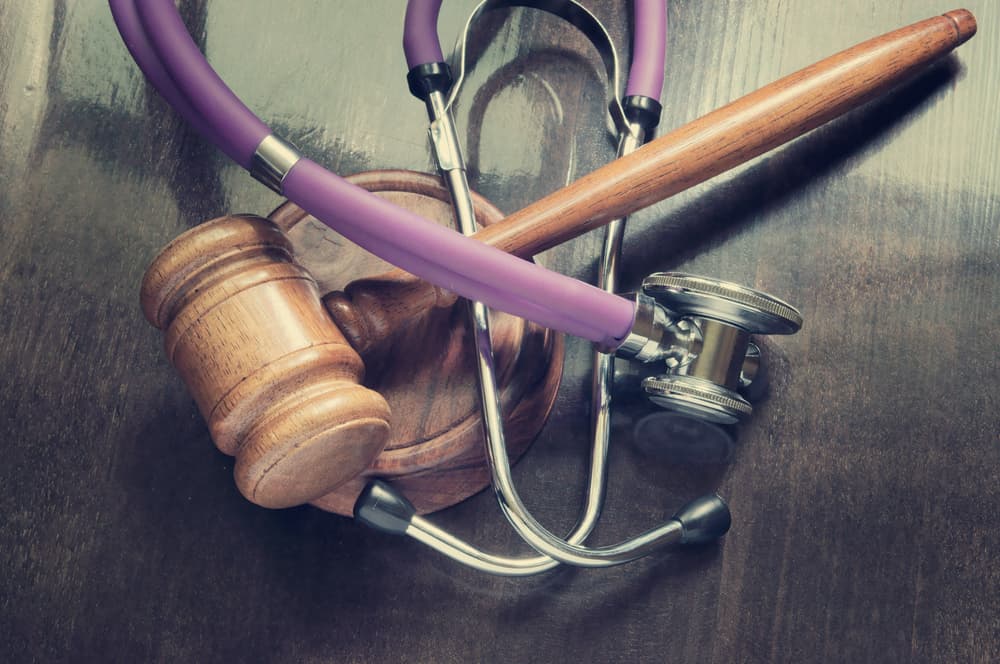Cancer misdiagnosis is a profoundly impactful and, unfortunately, common issue in the medical field. According to some studies, up to 20 percent of all cancer cases are misdiagnosed. This can lead to delayed treatment, unnecessary procedures, emotional distress, and even worsened health outcomes.
That's why you need to know the facts about cancer misdiagnosis and how to prevent it or cope with it if it happens to you or someone you care about. If you've experienced cancer misdiagnosis, our medical malpractice lawyers are here to help you seek accountability and secure the compensation you deserve.
The Reality of Cancer Misdiagnosis
Cancer misdiagnosis can occur in two primary forms: a false positive, where a patient is incorrectly diagnosed with cancer, and a false negative, where a cancer diagnosis is missed or incorrectly identified as another condition. Both scenarios can have dire consequences.
A false positive can lead to unnecessary treatments, such as chemotherapy or surgery, which can be physically and emotionally taxing. On the other hand, a false negative can lead to a delay in receiving the correct treatment, allowing the cancer to progress unchecked.
What Are the Causes of Cancer Misdiagnosis?

Several factors contribute to cancer misdiagnosis.
They include:
- Complexity of Diagnosis: Cancer symptoms can be vague and similar to less serious conditions, making diagnosis challenging.
- Lack of Resources: In some areas, especially rural or underserved areas, there might be a lack of access to specialists or advanced diagnostic tools.
- Human Error: Mistakes can happen at any stage, from initial examination to lab testing, often due to overworked medical staff or miscommunication.
The Emotional and Physical Toll of a Cancer Misdiagnosis
The emotional impact of a cancer misdiagnosis cannot be overstated. For those falsely diagnosed with cancer, the fear and anxiety associated with the diagnosis can be overwhelming.
Conversely, a delayed or missed diagnosis can lead to anger, frustration, and a sense of betrayal, especially if the cancer progresses to a more advanced stage where treatment becomes more difficult.
Physically, the consequences vary depending on the type of misdiagnosis. Unnecessary treatments for a false positive diagnosis can cause side effects and complications, affecting the patient's quality of life and overall health.
In cases of a missed or delayed diagnosis, the patient may lose valuable time in fighting the actual cancer, potentially leading to a need for more aggressive treatment and a decreased chance of a favorable outcome.
The Importance of Second Opinions
One way to reduce the risk of misdiagnosis is to seek a second opinion, especially when facing a serious diagnosis like cancer.
A second opinion can provide confirmation or offer a different perspective on your condition and treatment options. It's a valuable tool in your healthcare arsenal and can provide peace of mind or open new avenues for appropriate treatment.
Legal Considerations and Rights
Cancer misdiagnosis can sometimes result from medical negligence. Patients who have suffered due to misdiagnosis may have legal rights and options, including seeking compensation for medical malpractice.
Negligence and Liability
If the misdiagnosis was due to a healthcare provider's negligence, they might be held liable. Negligence involves failing to provide the standard of care that a reasonably competent medical professional would provide under similar circumstances.
Medical Malpractice Law
Medical malpractice law protects patients harmed by negligent medical care. If a cancer misdiagnosis falls under this category, the patient or their family might be entitled to compensation for medical expenses, lost income, pain and suffering, and other damages.
Statute of Limitations
It's important to note that there are time limits for filing medical malpractice lawsuits. These vary by state, so seek legal advice promptly to ensure that your right to file a claim is preserved.
Damages You Can Recover
When pursuing a medical malpractice lawsuit for cancer misdiagnosis, there are several types of damages you may be eligible to recover. These damages aim to compensate you for the harm you've suffered due to the negligence of a healthcare provider. Here are the common categories of damages:
Medical Expenses
You can seek compensation for all medical expenses related to the misdiagnosis, including the costs of unnecessary treatments, surgeries, medications, and follow-up care.
Lost Income
If the misdiagnosis resulted in you being unable to work, you may be entitled to recover lost wages and potential future earnings, including bonuses and promotions you might have missed out on.
Pain and Suffering
Non-economic damages, such as physical pain, emotional distress, anxiety, and loss of enjoyment of life, can also be compensated. These damages are often challenging to quantify but are an essential part of your recovery.
Disability and Impairment
If the misdiagnosis led to long-term or permanent disability, you may be entitled to compensation for the impact on your quality of life and daily functioning.
Loss of Consortium
In some cases, spouses or family members of the affected individual can seek compensation for the loss of companionship and support and the strain placed on their relationship due to the misdiagnosis.
Punitive Damages
In extreme cases where the healthcare provider's actions were particularly egregious, punitive damages may be awarded to punish the negligent party and deter similar conduct in the future.
The Process of a Medical Malpractice Lawsuit

Now, let's outline the general process involved in filing and pursuing a medical malpractice lawsuit related to cancer misdiagnosis.
Consult an Attorney
Seek an experienced medical malpractice attorney who handles misdiagnosis cases. They will evaluate your case's merits during an initial consultation.
Reviewing Medical Records
Your attorney will request and review your medical records, including all relevant documents such as diagnostic tests, medical notes, and treatment records.
Expert Consultation
Medical experts in the relevant field will be consulted to assess whether the standard of care was breached, leading to the misdiagnosis. They will provide expert testimony if necessary.
Filing the Lawsuit
Your attorney will draft and file a complaint against the healthcare provider or institution responsible for the misdiagnosis.
Discovery Phase
Both parties exchange information and evidence related to the case. This includes depositions, interrogatories, and the collection of relevant documents.
Negotiation or Mediation
Parties may engage in negotiations or mediation to reach a settlement before going to trial. If a settlement is reached, the case concludes at this stage.
Trial Preparation
If you cannot reach a fair settlement, the case proceeds to trial. Your attorney will prepare your case by organizing evidence, identifying witnesses, and developing a legal strategy.
Trial
The case is presented in court, with both parties presenting their arguments, evidence, and witnesses. A judge or jury will make a final decision on liability and damages.
Verdict and Judgment
If the court finds in your favor, a judgment will be issued specifying the damages awarded. The defendant may also appeal the decision.
Collection of Damages
Once damages are awarded, the process of collecting them begins. This may involve insurance payouts, garnishments, or other legal mechanisms.
Seeking Legal Assistance

If you or someone you love has been misdiagnosed with cancer, you might feel lost and confused. It’s not easy to deal with a medical mistake that could seriously affect your health and well-being.
That’s why you need legal help from a personal injury attorney who knows how to handle these cases. They can look into your situation, explain your options, and fight for your best interests. You don’t have to go through this alone. A lawyer can be your ally and your voice.